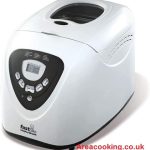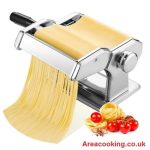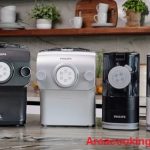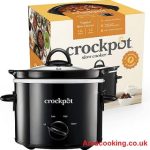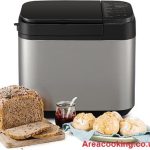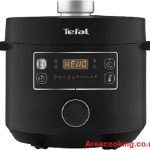As an Amazon Associate, I earn from qualifying purchases.

If you’re wondering how to clean your pasta maker without water, never fear! There are a few easy methods you can use to get your pasta maker clean and sparkling. With just a little effort, you can keep your pasta maker in top condition for years to come.
Contents
How To Clean Pasta Maker Without Water?

Method 1: Use A Dry Brush
The first method to clean your pasta maker without water is by using a dry brush. This method is effective in removing any excess flour and dough that may have accumulated on the pasta maker. To use this method, you need a dry pastry brush that has soft bristles.
Start by removing any large pieces of dough or flour from the pasta maker. Then, use the dry brush to gently brush off any remaining residue from the pasta maker. Be sure to clean both the rollers and the cutters of the pasta maker.
Method 2: Use A Dry Cloth
Another effective method to clean your pasta maker without water is by using a dry cloth. This method is useful for removing any small bits of dough that may have stuck to the pasta maker. To use this method, you need a soft dry cloth such as a microfiber cloth.
Start by removing any large pieces of dough or flour from the pasta maker. Then, use the dry cloth to gently wipe the rollers and the cutters of the pasta maker. Be sure to clean both sides of the rollers and cutters.
Method 3: Use A Vacuum
If you have a vacuum cleaner with a hose attachment, you can use it to clean your pasta maker without water. This method is effective in removing any small bits of dough and flour that may have accumulated in the crevices of the pasta maker.
Start by removing any large pieces of dough or flour from the pasta maker. Then, use the hose attachment of the vacuum cleaner to suck up any remaining residue from the pasta maker. Be sure to clean both the rollers and the cutters of the pasta maker.
Method 4: Use A Toothbrush
The fourth method to clean your pasta maker without water is by using a toothbrush. This method is useful for removing any small bits of dough that may have stuck to the pasta maker.
Start by removing any large pieces of dough or flour from the pasta maker. Then, use a toothbrush to gently scrub the rollers and the cutters of the pasta maker. Be sure to clean both sides of the rollers and cutters.
Method 5: Use Rice
Using rice is another effective method to clean your pasta maker without water. Rice is abrasive and can help remove any leftover dough or flour residue from the pasta maker.
To use this method, start by removing any large pieces of dough or flour from the pasta maker. Then, take a handful of rice and feed it through the rollers and cutters of the pasta maker. The rice will help remove any leftover residue from the pasta maker. Be sure to run the pasta maker on the widest setting when using rice.
Method 6: Use A Cleaning Solution
The final method to clean your pasta maker without water is by using a cleaning solution. This method is useful for removing any tough stains or residue that may have accumulated on the pasta maker.
To use this method, start by removing any large pieces of dough or flour from the pasta maker. Then, apply a small amount of cleaning solution to a soft cloth and gently wipe the rollers and the cutters of the pasta maker. Be sure to clean both sides of the once you have wiped the pasta maker with the cleaning solution, use a clean, damp cloth to wipe away any excess solution from the pasta maker. Finally, use a dry cloth to dry the pasta maker thoroughly.
When using a cleaning solution, it is important to read the instructions carefully and to make sure that the solution is safe for use on your particular pasta maker.
FAQs
Can I use soap and water to clean my pasta maker?
While it may be tempting to use soap and water, it is not recommended as it can damage the pasta maker.
How often should I clean my pasta maker?
You should clean your pasta maker after every use to ensure that it stays in good condition and produces high-quality pasta.
Is it safe to use a cleaning solution on my pasta maker?
Yes, but be sure to read the instructions carefully and make sure that the solution is safe for use on your particular pasta maker.
Can I use a metal brush to clean my pasta maker?
No, it is not recommended as it can scratch the surface of the pasta maker.
Can I use vinegar to clean my pasta maker?
While vinegar is a natural cleaning solution, it is not recommended as it can damage the pasta maker.
Conclusion
Cleaning your pasta maker without water is a quick and easy process that can save you time and effort. By following the steps outlined in this article, you can keep your pasta maker clean and hygienic, and extend its life. So, next time you use your pasta maker, try cleaning it without water and see the difference it makes.
